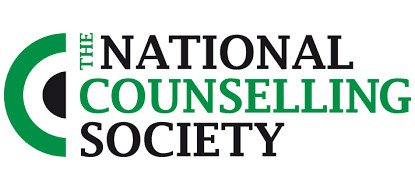The Inner Critic - from worst enemy to worthy ally
/The following was written by Palmeira Practice counsellor, Mo Jones.
Working with the inner critic
How do you talk to yourself? Do you have an inner voice that is harsh, disapproving, judgemental and punitive? Does it pop up just as you are about to put yourself out there by taking a risk, trying something new or being emotionally vulnerable? This negative self-talk is called the ‘inner critic’, the ‘anti-self’ or the ‘critical inner voice’, and it develops from a very young age.
"Be careful how you are talking to yourself, because you are listening." - Lisa Hayes
The inner critic evolves from the messages we receive in childhood:
- Parents, teachers and society as a whole encourage us to ‘behave better’ and ‘work harder’.
- We are repeatedly told ‘this is wrong’ ,’not enough’ and ‘try again’.
- This means our faults are highlighted more than our strengths are encouraged.
- In Western culture ‘criticism’ is often valued highly and perceived as a useful means of motivating, educating and protecting children (and adults alike).
- Culturally ‘high self-esteem’ is also equated with someone who is arrogant, self important, self-indulgent or selfish.
- Further more our culture prizes independence and individual achievement, so when we don’t meet standards ‘we only have ourselves to blame’.
As children grow into adulthood these messages are incorporated into how they feel about themselves. At the lower end of the scale people use self criticism as a tool for keeping themselves on the straight and narrow or as a method for self-improvement. At the other end of the scale this internalised commentary grows into a harsh inner critic that is un-relenting, demoralising and eventually paralysing. This kind of chronic deflation produces feelings of shame that essentially disconnects us from others and can lead to consuming loneliness.
Recognising the inner critic
What language does your inner critic use? Perhaps words and phrases such as these:
Useless * Waste of space * Not good enough * Unlovable* Worthless * Rubbish * Let down * Stupid * Disappointing * Don’t bother * Failure * Idiot * Ugly * Needy * Wrong
The inner critic has a hugely undermining drip-drip-drip effect on our well-being. Self-criticism is often a reactive response that operates on autopilot and triggers spiralling thought processes. However, it is important to remember that thoughts and feelings are not facts. No matter how powerful they feel. The inner critic also makes itself known through the tyranny of the word ‘should’, ensuring we feel like we’re always on the back foot. Additionally, continual self criticism stimulates the threat and protect system in the brain. This stimulates a sense of danger for our nervous system and keeps us is in a constant state of high alert.
The inner critic's constant voice wears away at us and our wellbeing over time unless it is controlled.
Counselling to alter the inner critic
Counselling can support us to overcome the inner critic in a number of ways.
Raise awareness of self-critical thoughts
Sometimes we are not even aware the inner critic has been at work. Instead we feel low, worthless, ashamed, disappointed, guilty, hopeless or anxious. These emotions can be the key to exposing a stealthy inner critic lurking under the radar. Becoming aware of the anti-self can be the first step to changing the internal record. As you begin to notice triggers, patterns in thoughts and physical sensations, you will become armed with information to tackle your inner oppressor.
Challenging the Inner Critic
This may sound a little daunting but gently questioning the script of self-critical thoughts and finding alternatives can bring tangible movement. When you no longer hear the critical inner voice as statements of truth you can open the door to a more fulfilled and peaceful life.
CBT techniques can guide us here by exploring questions such as :- Am I confusing thoughts with facts? Am I jumping to conclusions? Am I condemning myself as a person based on one single event? Am I focusing on my weaknesses and forgetting my strengths? Do I blame myself for things that aren't my fault? Am I expecting perfection from myself?
"There is nothing more important to true growth than realising that you are not the voice of the mind - you are the one that hears it." - Michael A. Singer
Practice Self-Compassion
The art of self-compassion can be a powerful tool in the management of self-criticism and is also the key to building emotional resilience. Self-compassion doesn’t hinge on eliminating difficult situations or limitless self-esteem. Instead it focuses on accepting the ups and downs of life with a loving non-judgmental attitude towards the self and others. Here perfection is seen for what is is, an illusion.
Counselling can open a dialogue between the inner critic and your compassionate self. Another gentle, caring and supportive voice is nurtured to bring relief and healing. Self-soothing methods are cultivated to bring comfort during moments of distress from the inside world and outside alike. And by becoming your own caregiver you can foster feelings of calm, security, contentment and trust in yourself.
In a society that places great emphasis on being kind to others, why not turn this inwards?
Ask yourself...
‘Would you speak to a close friend with the tone or language of your inner critic?’
‘If your friends don't deserve to be brow beaten by criticism, why do you?’
Pattabhi Jois once said ‘the mind is the cause of both bondage and liberation.’
Are you ready to liberate yourself from the bondage of the inner critic?
For support in working with your inner critic, contact Palmeira Practice counsellor Mo Jones.





